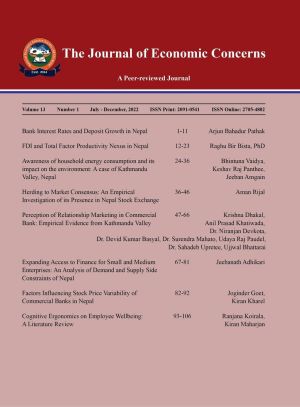Awareness of Household Energy Consumption and its Impact on the Environment: A case of Kathmandu Valley, Nepal
DOI:
https://doi.org/10.3126/tjec.v13i1.57059Keywords:
Energy Consumption, Environment, Kathmandu Valley, Electricity, Climate ChangeAbstract
The purpose of this paper is to assess the situation as it currently exists and the environmental impacts of household energy consumption in Nepal's urban setting. The paper makes several recommendations for joint environmental regulation and sustainable energy consumption. The study evaluated the level of sustainable energy consumption and examined the extent and composition of household energy use in urban areas based on questionnaire survey data. The findings indicate that electricity is the primary means of lighting, and LPG is the primary means of cooking. The findings also demonstrated that only a minority of those living in the Kathmandu Valley exhibit energy conservation behaviors and are cognizant of environmental effects like climate change. The overall energy consumption in urban areas is positively influenced by both population density and income levels. It is crucial to implement appropriate measures, such as optimizing the renewable resource and enhancing energy usage efficiency through technological advancement, in order to meet the goal of emission reduction and sustainable energy consumption.




